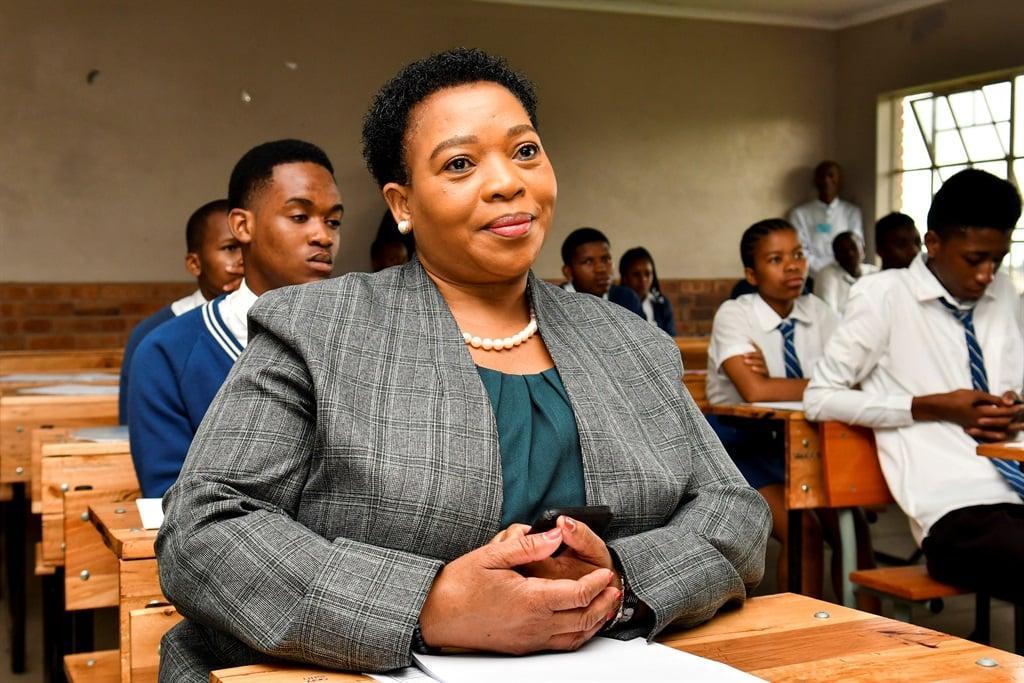Africa-Press – South-Africa. The KwaZulu-Natal education department is planning to close almost 1 000 schools it considers no longer viable.
Some of the schools would be handed over to the Department of Higher Learning and Training to open “schools of excellence”, KZN Premier Nomusa Dube-Ncube revealed in a legislature sitting.
Dube-Ncube tabled a report for debate regarding non-viable schools in KZN on Thursday.
Although the figure was not mentioned in the legislature, KZN officials pegged the number at 967 in their Schools Rationalisation and Realignment Programme report that was submitted to the National Assembly in early May.
The report said the provincial department had already wound down 255 schools in the first phase, with 185 being primary schools with pupil enrolment figures of up to 50, while 70 secondary schools with less than 100 pupils were being closed.
By 2026, in phase two, 379 schools would be shut down.
This comprises 263 primary schools with enrolment figures of between 50 and 100 pupils, and 70 secondary schools with 100 to 150 pupils.
The third phase, projected for completion by 2028, targets 333 school closures – 263 primary schools with pupil enrolment figures of 100 to 134 and 70 secondary schools with enrolments of 150 to 199.
A Department of Basic Education document, titled 2017 Guidelines for Rationalisation and Realignment of Public Schools: A Holistic Approach, stated while the department aimed to ensure all its pupils should access quality education in safe, nearby schools, running several micro-schools “compromised, weakened” and hamstrung its effort to provide curriculum support effectively.
The plan by Dube-Ncube suggests pupils whose schools are closed will be transported to the ones they are merged with, while others will be handed over to the Department of Higher Learning and Training.
However, Dube-Ncube’s government, in the same breath when punting the winding down of schools, has drummed the message the scholar transport programme has a funding crisis, which resulted in thousands of pupils not having transport.
Opposition parties pointed out the scholar transport contradiction and said pupils from several schools, which had been closed, had dropped out because the schools they were sent to were too far from their communities and the faltering scholar transport programme could not accommodate them.
Chiefly, the plan looks to offload pupils from non-viable schools to the nearest fit-for-purpose ones and close some of them, while transferring some of the properties to the Department of Higher Learning and Training so that the non-viable schools’ properties could be transformed to “centres of excellence”.
IFP MPL Thembeni Mthethwa said the proposal “doesn’t take away the existing problem[s]” that made the schools non-viable to begin with.
DA MPL and spokesperson on education Dr Imran Keeka added no two schools were the same and the KZN department’s blanket plan to close all the troubled schools was flawed.
Keeka asked: “A plan about a plan doesn’t cut it. The big question is: where is the money?”
He said the money would be needed to transfer pupils to other schools, transport them and build the centres, etcetera.
Keeka added the terms of the premier and other politicians would have ended by 2028, when all the schools have been closed.
He acknowledged some of the schools were not viable.
Keeka said what had been outlined in the premier’s report – such as the transfer of properties, transport and transfer of pupils and the development and IT as well as the “hot air about expanding” the Fourth Industrial Revolution’s robotics programme – were “nothing more than an illusion by the premier, who is in this case the illusionist-in-chief”.
He added all these ideas needed money and Ncube-Dube’s presentation – delivered by Human Settlements and Public Works MEC Sipho Nkosi on her behalf – made no mention about where the money would come from.
Keeka said:
NFP MPL and whip Cynthia Shinga said the project of closing schools needed to be reviewed and a case study opened.
She added the provincial government had failed to deal with the issue of non-viable schools and scholar transport.
ANC MP Linda Hlongwa-Madlala said the plan was “not done haphazardly”, and schools would not be closed without integration.
“There is nothing done in haste,” she added, saying the plan would also address youth unemployment in the long run.
“The programme and planning [of school closures] started as early as 2009 when Water and Sanitation Minister Senzo Mchunu was MEC of education when this matter was mooted because the schools were getting smaller, factional fights [among schools management] …”
She said it was “unfair and disingenuous” to criticise the provincial government.
“There is stubbornness in youth unemployment. No matter how not-so-smart you may be, but you can’t close your eyes to that. Something must be done,” Hlongwa-Madlala added.
She said the province “has a vision, thought, and intention”.
For More News And Analysis About South-Africa Follow Africa-Press






